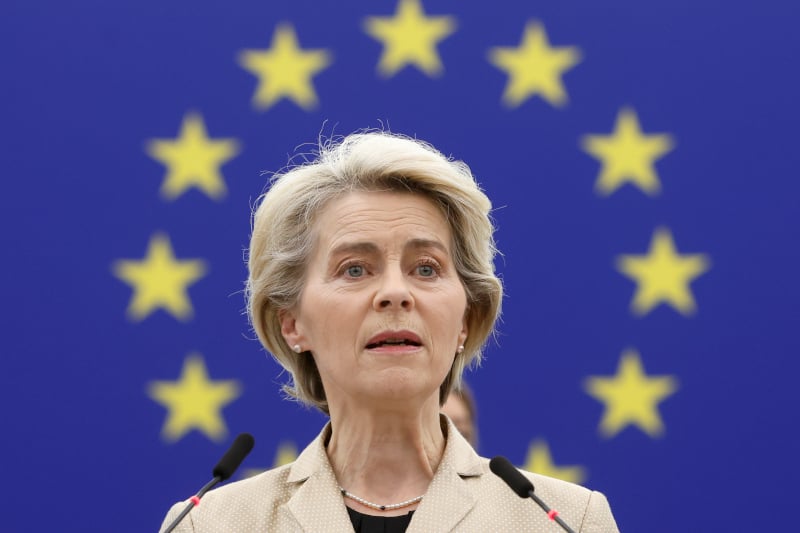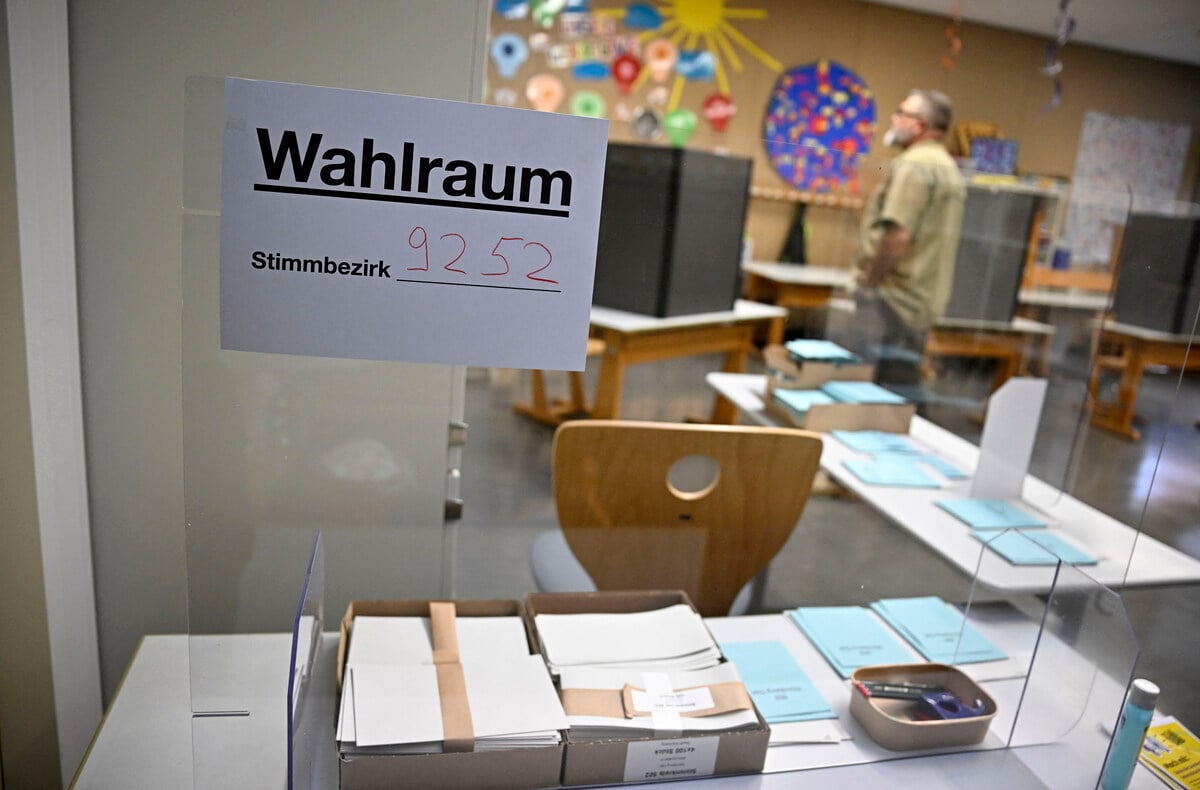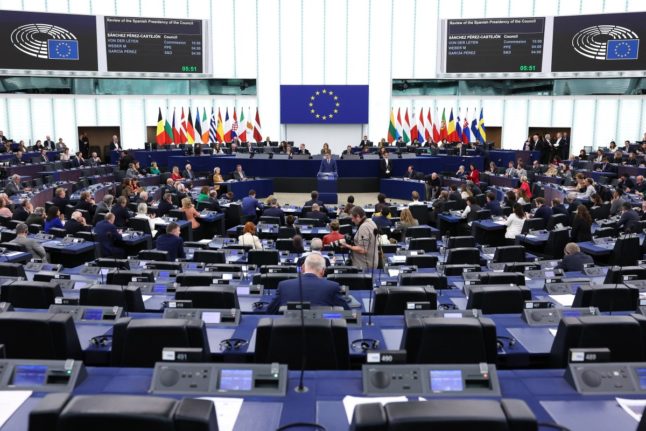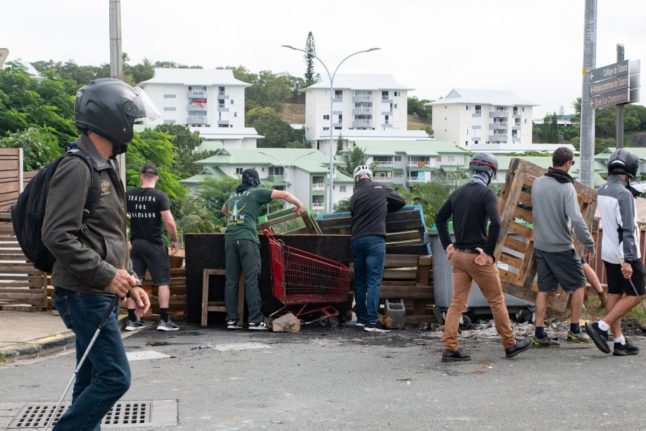The European Parliament is one of the largest elected bodies in the world – with 705 members.
With over 450 million people living in the EU, only India’s Parliament represents more people globally.
Plenty of hot button issues – like national defence and healthcare – are still largely decided by national parliaments. That’s likely to remain so, but the European Parliament has power to act in a few key areas.
It scrutinises all laws the EU’s executive – or the European Commission – proposes and it can also request legislation. Plenty of recent high-profile EU laws have come at its insistence. These include the end of roaming charges in the EU and GDPR, which now sets data privacy standards around the globe.
Besides regulations on tech and artificial intelligence, expect MEPs to be debating a lot of legislation around consumer protection, food safety, certain action on climate change and transition like the European Green Deal, trade deals, as well as Europe’s support for Ukraine and whether it will eventually be a member of the EU.
European election results will also have some influence over whether Ursula von der Leyen – the first woman ever to be European Commission President and from the centre-right European People’s Party (EPP) – gets another term.

READ ALSO: Who is Germany’s Ursula von der Leyen, the surprise candidate to take the EU’s top job?
So do MEPs represent their country in the European Parliament?
Technically, they’re not supposed to. MEPs are mandated to act in what they see as the interest of wider Europe – even if that conflicts with the interests of their own country. MEPs are still chosen in election contests that are run nationally though.
Every five years since 1979, voters around the European Union vote for 705 Members of the European Parliament (MEPs) in Brussels and Strasbourg. Each country gets a number of MEPs roughly proportional to its population. With Germany being the EU’s most populous country, it gets the most, with 96 seats.
However, MEPs don’t sit in the European Parliament based on country as they aren’t supposed to act in purely national interests – but looking at what they see as the interest of all of Europe. They sit in the European Parliament based on party group. So a Green from Germany and a Green from France will sit together. That German Green also won’t be sitting with the German Christian Democrats – who themselves will sit on the other side of the chamber with parties like Ireland’s Fine Gael – a fellow centre-right party.
European parliamentarians say they do that to encourage you to vote in a European way – considering the issues you think will impact all of Europe – rather than treat the European elections as a referendum on your own national government – which studies show often happens.
How are the elections expected to go?
Some countries – most notably Germany – report a strong lead for a mainstream party. In Germany’s case, that party is the centre-right Christian Democratic Union (CDU), of which current European Commission President Ursula von der Leyen is a member. The populist far-right AfD, meanwhile, trails by comparison.
EUROPAWAHL | Sonntagsfrage Ipsos/Euronews
Union: 29% (+0,1)
SPD: 17% (+1,2)
GRÜNE: 16% (-4,5)
AfD: 16% (+5,0)
BSW: 7% (NEU)
LINKE: 4% (-1,5)
FDP: 4% (-1,4)
FW: 3% (+0,8)
Sonstige: 4% (-6,7)Änderungen zum Wahlergebnis von 2019
Verlauf: https://t.co/DCfbp5V3EK#EUWahl #EP2024 pic.twitter.com/ql6cnW5iif
— Deutschland Wählt (@Wahlen_DE) March 19, 2024
‘Wake-up call’: Far-right parties set to make huge gains in 2024 EU election
The same cannot be said for the populist right elsewhere in Europe, where polls everywhere from Austria to Sweden to France and the Netherlands show right-wing parties having the potential to make some big gains over their 2019 results.
At the same time, more centrist European political parties on the centre-left and centre-right are still likely to be able to keep a majority in the European Parliament according to the latest polls.
Elections to borders: 7 big changes in the EU that will impact you this year
Who gets to vote?
If you are a citizen of the European Union – whether German, Irish, French, Italian, Spanish, etc. – you can vote in the European elections.
It’s important to note here that you don’t necessarily vote where you are from but instead vote from wherever you live in the EU. So if you’re an EU citizen living in Germany, you don’t need to be German to vote in the European elections in Germany. A German living in Spain would vote there, just as a Spaniard living in Germany would vote there.
Voting rules are nationally set though. So EU citizens who are 16 years or older can vote in Germany and Austria, but those same EU citizens would need to be 18 to vote in France, Spain, Italy, Denmark, or Sweden.
Each country will also handle voter registration processes by their own rules and voting itself takes place on the day it would normally happen in that country. For many countries, this is Sunday, June 9th – although Italy opens its vote on Saturday, June 8th as well.

The vote is proportional and most countries are one national constituency. Some countries do though, have some subnational constituencies. These include Italy, Ireland, Belgium, and Poland.
Italy, for example, has five regional constituencies that elect MEPs. These are Northwest, Northeast, Central, Southern, and Islands. Each one represents four to six of the Italian regions – with the exception of Islands – which elects MEPs to represent Sardinia and Sicily.



 Please whitelist us to continue reading.
Please whitelist us to continue reading.
Member comments